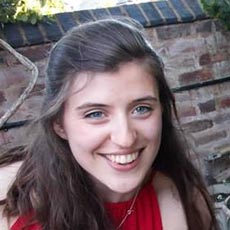Get Involved - Research Projects
Sleep in Neurodevelopmental Disorders: Part Two
Sleep in Neurodevelopmental Disorders: Part Two
*FOUR SLOTS LEFT TO FILL*

Funded by Cerebra 2013-2019
Background
Previous research has described a number of sleep difficulties that may be experienced by children with Angelman syndrome and Smith-Magenis syndrome. The use of actiwatches (wrist-watch like devices worn on the wrist that record activity levels) will enable the researchers to develop a more detailed understanding of the relationship between sleep quality, daytime sleepiness and behaviour in people with AS and SMS and how these have developed over time. The current project will also assess parent and child night-time interactions, and the role of melatonin in sleep difficulties.
Aims
The first part of this project aims to describe and compare the types of sleep difficulties experienced by children with Angelman syndrome, Smith-Magenis syndrome and children of typical development, and to assess how these may have developed from Part One of the study.
The project will also consider whether any of these sleep difficulties are associated with night-time interactions and the role of melatonin as well as daytime behaviour, health problems and level of intellectual disability.
Method
Study 1: Parents of children with Angelman syndrome, Smith-Magenis syndrome or typical development are invited to take part in a follow-up study of sleep and behaviour. This will involve the use of actiwatches, sleep diaries, questionnaires and some additional measures of night-time interactions and melatonin.
If you took part three years ago, please look out for details of this follow-up study in the post! (If you have changed address since taking part, please let Georgie know using details below).
Study 2: If you are a parent of a child (aged 4-16) with Angelman syndrome or Smith-Magenis syndrome who did not take part in the sleep study three years ago, we also want to hear from you! This will involve the use of actiwatches, sleep diaries, questionnaires and some additional measures of night-time interactions and melatonin.
All equipment will be provided and every family will receive a feedback report at the end of their participation.
To find out more please contact:

Georgie Agar
Email: GXA295@student.bham.ac.uk
Tel: 0121 4142855
(Supervised by Dr Caroline Richards and Professor Chris Oliver)



